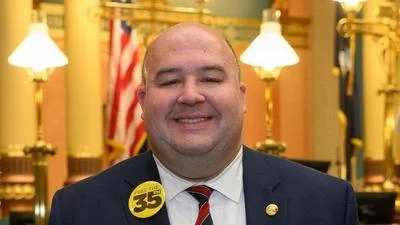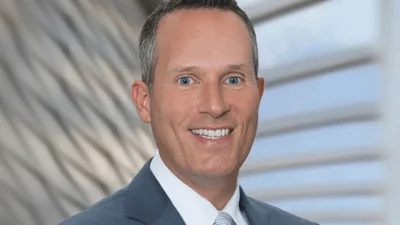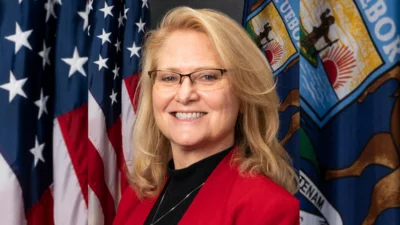University of Michigan economics professor Justin Wolfers. | brookings.edu/
University of Michigan economics professor Justin Wolfers. | brookings.edu/
Earlier this month, as President Joe Biden blamed Russia's invasion of Ukraine and "#PutinPriceHike" for high energy costs in the U.S., a Michigan-based economist made his own observations about the economy.
Justin Wolfers, a University of Michigan economics professor, Brookings Institute senior fellow and New York Times contributor, warned March 10 that economic indicators released that day were based on pre-Ukraine-invasion data. The place to watch is the service sector, Wolfers said.

White House communications director Kate Bedingfield.
| twitter.com/WHCommsDir
"If you wanted to worry, the concern is that inflation is starting [slowly] to spread from the volatile [and supply chain affected] goods sector, to services," Wolfers said in a Twitter post with comments that day. "Services inflation is 4.4% over the past year, and rose a tick to 0.5% in February. Keep your eye on the service sector."
Wolfers also is a senior fellow at the Peterson Institute and co-hosts the Think Like an Economist podcast.
Wolfer's observations on Twitter were based on that day's release of the U.S. Bureau of Labor Statistics' Consumer Price Index (CPI) data for 12 months ending February 2022. That data showed a 7.9% annual CPI increase, a 40-year high.
Consumer Price Index measures inflation and the cost of dozens of common consumer goods.
Wolfers said he, like most economists, wasn't surprised by the CPI data, which included the increases for gasoline, shelter and food, the three largest contributors to a seasonally adjusted all-items increase. The gasoline index rose 6.6% in February and accounted for almost one-third of the all-items monthly increase. The gasoline increase was dramatic compared to January, when that index fell 0.8%.
On the same day the CPI data was released, the nation's gas price average was $4.32, according to the American Automobile Association. The average in the state of Michigan that day was $4.26 per gallon.
"Core CPI rose a calmer 0.5% [again as expected], and is up 6.4% over the year," Wolfers said. "There will be lots of headlines but this is the number everyone expected."
While economists expected Core CPI to rise, Wolfers cautioned that the CPI data dates mostly before Russia's large-scale invasion of Ukraine on Feb. 24.
"Of course, these are the numbers before the Russia-Ukraine conflict sent energy price up, so some more eye-catching headline inflation numbers are ahead of us," he said. "But keep your eye on core CPI to see what the real signal is."
The core CPI reveals elevated inflation but Wolfers said "there's no sense in which it's taking off."
"The last five monthly readings are 0.6% in October, 0.5% in November, 0.6% in December, 0.6% in January and 0.5% in February," Wolfers added.
Much of what economists are noticing was born out of the ongoing COVID-19 pandemic, which could mean good news going forward, Wolfers said.
"Realize that as supply chains become unfurled that it's not just that the good sector inflation will slow, but as prices, say of used cars, fall back to normal, they'll actually push inflation down," he said. "That's why many [economists] remain confident inflation will fall [in due course]."
Wolfers concluded by saying the CPI data had something for everyone.
"This is one of those economic reports that will fuel both the confidence of the sky-is-falling types, as well as the steady-as-she-goes folks," he said. "It doesn't reveal much about the transitory versus permanent nature of things, though Ukraine extends the timeline on transitory a bit."
The day prior to Wolfers' observations, Fox News reported that the Biden administration blamed Russia President Vladimir Putin for record-high gas prices in the U.S. That same day, White House communications director Kate Bedingfield posted to Twitter that the higher energy costs was "#PutinPriceHike in action" and said the president "is going to use every tool at his disposal to shield Americans from pain at the pump." The hash tag has been making the rounds ever since.
Statista reported last month that inflation in the U.S. has been steadily increasing since Biden took office in January 2021.






 Alerts Sign-up
Alerts Sign-up